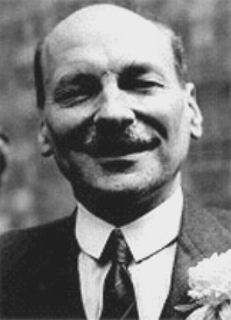In 1920, a thirty-seven year old university lecturer published a book on social work. Clement Attlee, later to become famous as Prime Minister of the 1945 Labour Government, had spent several years after graduating at Oxford serving charities in London’s East End, most notably as secretary of Toynbee Hall. Like most men of his background and generation, he was commissioned in the Great War, and was one of the last to be evacuated from Gallipoli.
I was reminded of Attlee’s book when reading Georgina Brewis’ terrific study of student volunteering in Britain. Brewis shows that the university settlement movement of the late nineteenth century was part of an emerging student associational culture in which voluntary social service started to develop some of the forms of professional social work. She also, incidentally, demonstrates the disproportionate significance of women in the movement.
Attlee’s book can be understood as part of the transition from organised volunteering as a form of inter-class bonding through to a professionalised body of social workers. In it, he describes the opportunities available to would-be social workers, and devotes a chapter to the training and qualifications that he deemed desirable. Interestingly, he wrote the book while serving as Labour mayor for Stepney.
It was inevitable that Attlee would say something about the labour colony movement. Given its scale and its much-debated status, he could hardly ignore it. Among others, he singled out the Salvation Army’s colony at Hadleigh, the municipal colony inspired by George Lansbury at Hollesley Bay, and Joseph Fels’ land settlement colony at Mayland.
What did Attlee make of these ventures? His view of Hadfield was coloured by his suspicion of the Salvation Army, whose combination of boisterous religion and financial relief put ‘a premium upon hypocrisy’. He also feared that the Army’s workshops were undercutting ordinary workers. Hadleigh, though, was ‘far better conceived’.
He also admired the other colonies for training the unemployed, though noting that attempts to settle them on the land had come to little. The solution, Attlee suggested, lay in translating the methods of the co-operative movement to land settlement.
It would be unfair, and flawed, to overstate his interest in the labour colony movement: it merited a few mentions in a detailed study of British social service. But Attlee’s reasons for sympathising with the movement are instructive:
It must be recognised that prolonged unemployment is very demoralising, and that it is idle to expect those whose moral stamina has been undermined by casual work and insufficient food to become useful citizens and workers by the mere provision of work. Some form of training is necessary, and also some form of moral suasion, and the Salvation Army employs methods that are, at least in some cases, effective.
Attlee, of course, was far from alone in his sympathies. George Lansbury, Labour’s leader for much of the 30s, was an enthusiastic proponent of labour colonies as a means of resettling London’s unemployed on the land, while the Webbs were among other socialists who took a more punitive view of labour colonies. Beveridge expressed interest in the labour colony as part of the wider remedy for unemployment.
Such ideas and practices were found across large parts of progressive British opinion. We cannot understand the nature of Britain’s welfare state, as it was forged during the 1940s, without having some grasp of this longer background and its influence on the thinking and principles of those who shaped the settlement of the 1940s.


Reblogged this on UNEMPLOYED IN TYNE & WEAR.
Reblogged this on idontbelieveitagain and commented:
Attlee: last men out of Gallipoli.